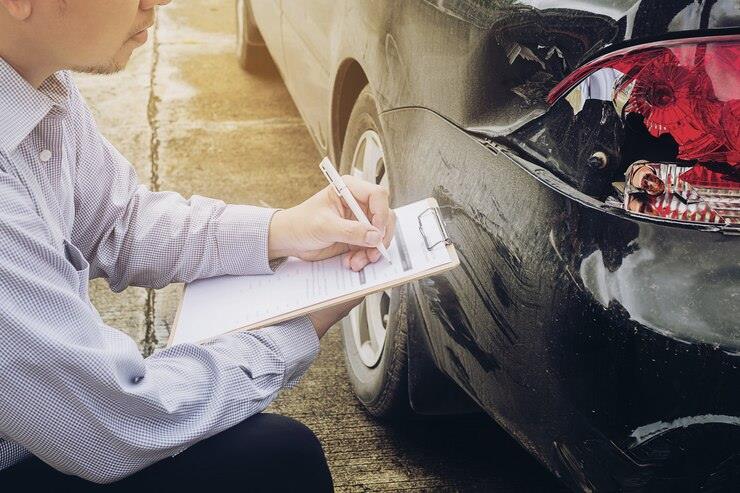
In the world of traffic incidents, the term “fender bender” is often used to describe minor collisions that result in minimal damage to vehicles. However, the question arises: Does a fender bender qualify as an accident? Understanding the nuances of this terminology is crucial, as it can have implications for insurance claims, legal proceedings, and how such incidents are perceived in road safety.
In this comprehensive guide, we’ll explore the nuances of fender benders, shedding light on what you should do, the potential for filing insurance claims, and the often-overlooked consequences of these minor collisions.
What Constitutes a Fender Bender?
A fender bender typically refers to a minor car accident involving minimal vehicle damage. These incidents often occur at low speeds, such as in parking lots or during traffic congestion. While the term “fender bender” implies a minor impact, it’s crucial to recognize that even seemingly insignificant collisions can have legal implications.
Causes of Minor Car Accidents:
Understanding the causes of fender benders is essential for preventing future incidents. Common factors contributing to minor fender bender accidents include:
Distracted Driving: In an era dominated by smartphones and constant connectivity, distracted driving is a leading cause of fender benders. Whether texting, adjusting the radio, or engaging in other activities, drivers may lose focus and inadvertently collide with another vehicle.
Tailgating: Following too closely behind another vehicle reduces reaction time, increasing the likelihood of a rear-end collision – a prevalent type of fender bender.
Parking Lot Mishaps: Narrow spaces, limited visibility, and tight corners make parking lots hotspots for minor collisions. Drivers may misjudge distances or struggle to navigate confined areas.
Failure to Yield: Failing to yield the right of way at intersections or during lane changes can result in side-swiping or T-bone collisions, constituting fender benders.
Steps to Take After a Fender Bender Accident
Ensure Safety: Move to a safe location, especially if the accident occurs in the middle of traffic. Turn on your hazard lights and use cones or warning triangles if available.
Exchange Information: Swap contact and insurance details with the other party involved. Include names, addresses, phone numbers, insurance company information, and vehicle details.
Document the Scene: Take pictures of the accident scene, including vehicle damage, license plates, and the surrounding environment. These visual records can be invaluable when filing an insurance claim.
Seek Medical Attention: Even if you feel fine initially, it’s crucial to undergo a medical evaluation. Some injuries may not present immediate symptoms, and having a medical record can strengthen any potential injury claims.
Contact the Police: In many jurisdictions, it’s advisable to involve the police, especially if there are injuries or significant property damage. Obtain a copy of the police report for your records.
Notify Your Insurance Company: Inform your insurance provider about the incident immediately. Provide accurate details and cooperate fully with their investigation.
Vehicle Damage May Turn Out More Extensive Than Anticipated:
While the term “fender bender” suggests minor damage, it’s crucial to recognize that the extent of vehicle damage may not always be apparent immediately. Even seemingly harmless collisions can result in hidden structural damage or compromise the vehicle’s safety features.
In the aftermath of a fender bender, you should seek a professional assessment of your vehicle’s condition. This ensures your safety on the road and provides documentation of any damages that may be crucial when dealing with insurance claims.
Does a Fender Bender Count as an Accident?
The term “accident” might conjure images of catastrophic collisions, but legally speaking, a fender bender falls under this category. Any unexpected event resulting in damage to property or injury, irrespective of its severity, qualifies as an accident.
Fender Bender Injuries:
One misconception about fender benders is that they only cause damage to vehicles, overlooking the potential for injuries. While these incidents typically involve lower speeds, injuries can still occur, particularly in the case of a rear-end collision. Common fender bender injuries include:
Whiplash: The sudden jolt of a fender bender, especially from behind, can cause the head and neck to jerk violently, leading to whiplash injuries. Symptoms may not manifest immediately, making it essential to seek medical attention promptly.
Soft Tissue Injuries: Strained muscles, sprained ligaments, and other soft tissue injuries can result from the impact of a fender bender. These serious injuries may not be immediately apparent and could worsen if left untreated.
Neck and Back Pain: The abrupt force of a collision can cause lingering neck and back pain, affecting daily activities and quality of life.
Compensation for Injuries:
If you’ve suffered injuries in a fender bender, you may be entitled to compensation for medical expenses, pain and suffering, lost wages, and other damages. Establishing the link between the accident and your injuries is crucial for a successful personal injury claim.
Vehicle Repairs and Property Damage:
While minor fender benders may seem inconsequential, the cost of repairing or replacing damaged vehicles can add up. Insurance claims typically cover these costs, but understanding the process and documenting all damages is essential for a fair settlement.
Who is Liable for These Damages?
Determining liability in a fender bender involves assessing the circumstances leading to the collision. While it’s tempting to assume that the driver who rear-ended another is always at fault, the legal reality is more nuanced.
In Nevada, as in many other states, negligence is a key factor in establishing liability. Factors contributing to negligence in a fender bender may include:
Distracted Driving: If the at-fault driver was engaged in distracting activities, such as texting or talking on the phone, they may be deemed negligent.
Following Too Closely: Tailgating is a clear example of negligence, as it reduces reaction time and increases the risk of a collision.
Failure to Yield: If a driver fails to yield the right of way, leading to a fender bender, they may be held liable for the resulting damages.
Speeding: Excessive speed in adverse or congested conditions can contribute to a fender bender and establish liability.
Understanding the legal nuances of liability is crucial for those seeking compensation for injuries or vehicle damage. Consulting with an experienced car accident lawyer can provide clarity and guidance tailored to your specific situation.
Can You File an Insurance Claim for a Fender Bender?
Filing an insurance claim for a fender bender is a common concern for those involved in minor car accidents. In many cases, it’s advisable to contact your insurance company, even if the damages appear minimal. Key steps to consider when filing a claim include:
Gather Information: Exchange information with the other party involved, including names, contact details, insurance information, and vehicle details. Additionally, collect contact information from any witnesses.
Document the Scene: Take photographs of the accident scene, including vehicle damage, road conditions, and any relevant traffic signs. This documentation can serve as valuable evidence during the claims process.
File a Police Report: While Nevada law may not require filing a police report for minor accidents, having an official record of the incident can strengthen your insurance claim.
Seek Medical Attention: Even if you don’t feel injured immediately, seeking medical attention after a fender bender is advisable. Some injuries, such as whiplash, may not present symptoms until later.
Contact Your Insurance Company: Notify your insurance company of the accident promptly. Provide them with all relevant details, including the police report and medical documentation.
Insurance Company Involvement:
Insurance companies play a crucial role in the aftermath of a fender bender. Understanding how they assess claims and handle settlements is essential for anyone seeking compensation. Insurance adjusters will typically investigate the following:
Extent of Damages: Assessing the cost of repairs or replacement for the damaged vehicles.
Injury Claims: Reviewing medical records and documentation to evaluate claims for injuries sustained in the accident.
Liability: Determining fault based on the circumstances of the fender bender.
Claim Process: Guiding the insured through the claims process, including documentation and communication requirements
How an Attorney Can Help After a Fender Bender:
In the aftermath of a fender bender, especially if injuries are involved, seeking legal guidance becomes paramount. Car accident lawyers and personal injury attorneys specialize in navigating the complex legal landscape surrounding minor motor vehicle accidents. Their expertise can be invaluable in ensuring you receive fair compensation for damages.
Interpretation of Laws: Attorneys understand the complex legal framework surrounding car accidents, ensuring that your rights are protected and relevant laws are applied.
Investigation and Evidence Gathering: Attorneys can conduct a detailed investigation into the circumstances of the fender bender, collecting evidence such as witness statements, accident reconstructions, and expert opinions.
Liability Determination: Attorneys play a crucial role in determining liability by assessing factors such as traffic rules, eyewitness accounts, and official police reports.
Communication with Insurance Companies: Attorneys are skilled negotiators who can engage with insurance companies on your behalf, ensuring that you receive fair compensation for damages and injuries.
Filing and Managing Insurance Claims: Attorneys navigate the intricate process of filing insurance claims, ensuring that all necessary documentation is submitted accurately and promptly.
Dealing with Uninsured or Underinsured Drivers: Attorneys can navigate the complexities of dealing with uninsured or underinsured drivers, exploring legal avenues to secure compensation through alternative means.

Let BLG Be Your Advocate After a Fender Bender
In conclusion, the question of whether a fender bender counts as an accident is not merely a matter of semantics – it has legal implications that can significantly impact your life. Whether you’re dealing with minor vehicle damage, seeking compensation for injuries, or navigating the complexities of insurance claims, understanding your rights and responsibilities is crucial.
If fender bender accident victims find themselves in the aftermath of a fender bender, remember to stay calm, document the scene, seek medical attention, and consult a car accident attorney if needed. The road to justice may have twists and turns, but with the right guidance, you can navigate it successfully and emerge on the other side with the compensation and peace of mind you deserve.
At BLG , we understand the intricacies of minor car accidents, commonly known as fender benders. Suppose you’ve been involved in a collision and are navigating the complexities of insurance claims, seeking compensation for injuries, or determining liability. In that case, our experienced car accident lawyers are here to guide you.




